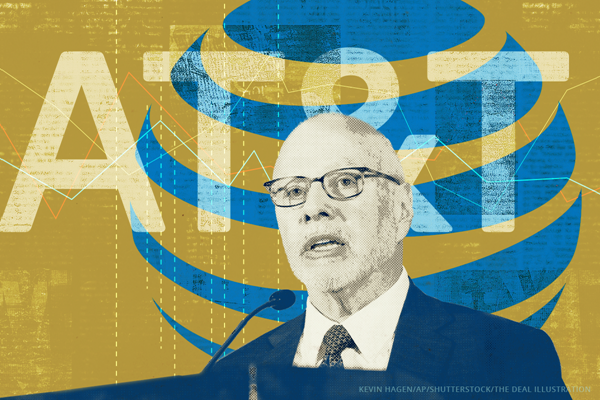|
Activists Push Regulatory, Geopolitical
Boundaries for Tie-Ups
Elliott’s push for a DirecTV-Dish
Network combination is just the latest example of activists agitating
for blockbuster deals that often aren’t approved due to antitrust or
geopolitical issues.
By Ronald
Orol
Updated on September 20, 2019, 05:14 PM ET
|

Paul
Singer, Elliott Management |
Activist investor Elliott
Management Corp. reportedly believes
that a combination of AT&T
Inc.’s (T) DirecTV and
the Dish
Network Corp. (DISH) can be approved in today’s
regulatory environment.
If
so, it would be the latest example of an insurgent fund manager
agitating for blockbuster deals that push the envelope on what can be
approved by antitrust regulators in Washington. In other situations,
insurgent investors have interjected themselves into mergers that
become ensnared in U.S.-China trade negotiations.
“Many anti-trust-sensitive mergers were driven by activist hedge
funds,” said one activist defense attorney.
The Wall Street Journal reported
on Sept. 18 that AT&T was exploring ways to divest DirecTV. However,
CNBC on Sept. 19 reported that,
in fact, the communications giant is not focused on selling the pay-TV
unit. The CNBC item cited sources noting that Elliott Management is
pushing for a divestiture or sale of DirecTV and that the activist
fund believes that a Dish-DirecTV merger can get done in today’s
regulatory environment. Elliott did not return a request for comment.
Elliott has suggested that DirecTV and other large assets of the
Dallas, telecom giant should be considered for divestment. The fund
suggested that it was possible that DirecTV may not have a clear
strategic rational for being part of AT&T.
Even
so, a push to combine DirecTV and Dish could raise clear regulatory
issues. AT&T is well aware of them. On Sept. 11, AT&T CFO John
Stephens pointed out that a combination of DirecTV-Dish
has been “tried from a regulatory perspective” and “hasn’t been
successful.” In 2002 federal regulators stopped a combination of the
businesses.
He
added that, “I don't know that there's any change in that regulatory
perspective, so, I would suggest to you we'd rather focus on the
business than focus on regulatory process and approvals.” A
combination could raise the ire of antitrust regulators in Washington
at a time when state and federal policymakers appear particularly
concerned about too much consolidation in the media and communications
industry, he noted
Even
so, activists often seek to push for deals that ultimately end up
entangled in a regulatory morass – many of which are ultimately
blocked by regulatory agencies. Last year, Starboard
Value LP called off a proxy fight at title insurer Stewart
Information Services after rival Fidelity
National Financial Inc (FNF) agreed to acquire it for
$1.2 billion. The same month Starboard liquidated its 10% stake. In
September, the title insurers canceled their
merger after the Federal
Trade Commission said it would block the deal on
antitrust grounds.
In
2015, Starboard campaigned to drive a combination of office supply
chains Staples and Office
Depot, which was later challenged by the FTC and
ultimately blocked by a judge.
Activists often get involved in driving deals that ultimately face
complex cross-border issues. One wonders what will happen to Nvidia
Corp.’s (NVDA) $125 a share deal to buy
Starboard-target Mellanox
Technologies Ltd. (MLNX).
The
activist fund liquidated its position in Mellanox shortly after that
transaction was announced in March, but no deal has been consummated
and the target’s share price has been drifting down – trading recently
at $113 a share – over concerns about whether China will approve the
deal as the two countries negotiate on trade.
David A. Katz, partner
at Wachtell,
Lipton, Rosen & Katz in New York argues that if an activist is going
to push for a transaction that has having significant antitrust,
national security or financing closing risks, "you would think they
should be required to hold their shares through the closing of the
transaction.” He added that if they aren't willing to keep the stock
until closing, then their views should be given less weight.
"By
selling after the deal announcement and before closing, they have a
different risk profile than the other shareholders, and if the
transaction fails, the company is damaged but they are long gone," he
said.
Activists often get involved in existing deals that are later unwound.
Recently, Elliott Management pushed Qualcomm
Inc. (QCOM) to increase the amount it was willing to
pay to buy NXP
Semiconductors NV (NXPI).
However, that deal was never consummated – in July 2018 Qualcomm
terminated the acquisition, after waiting almost 21 months in hopes of
winning the Chinese government’s regulatory approval.
In
late 2014, after Halliburton
Co. (HAL) announced it was seeking to acquire Baker
Hughes Inc. (BHI) in a blockbuster $35 billion
deal. Activist investor ValueAct
Capital Partners LP bought significant minority stakes
in both companies and agitated for the transaction to be consummated.
However, the merger was called off after the Justice
Department filed a civil antitrust lawsuit in the U.S.
District Court in Delaware seeking to
block the merger.
|


